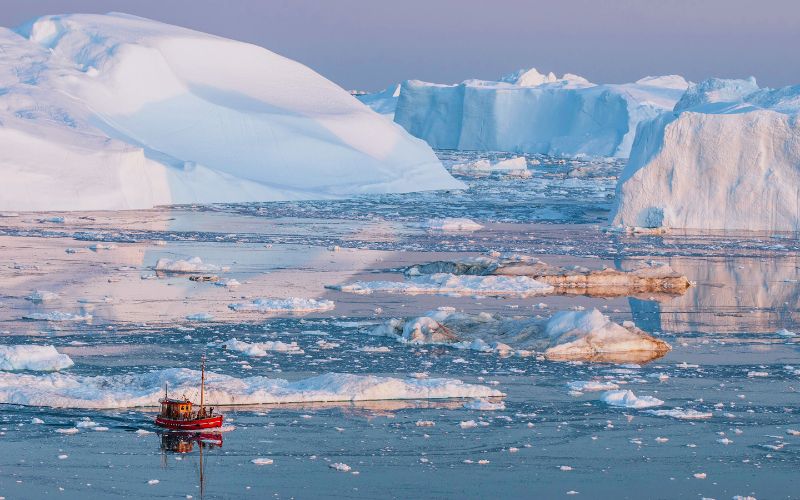Fuel Slick From Sunken Ship Spreads to Greenland Fjord
Greenland Shipwreck Causes Diesel Spill, Threatening Arctic Waters

A large diesel spill from a sunken ship is creating serious concerns for the Arctic waters near Greenland. The ship, which sank after hitting a reef, has released harmful diesel fuel into the delicate marine environment. Firefighters are working hard to contain the spill and protect the local ecosystem.
The ship, called the Adolf Jensen, ran aground late at night between Wednesday and Thursday. It was carrying a large amount of fuel—between 15,000 and 20,000 litres of diesel, along with 1,000 litres of engine oil. After the accident, about 20,000 litres (or 5,300 gallons) of diesel leaked into the fjord, a long, narrow water inlet, in Nanortalik Fjords in southern Greenland.
Pacific Environment experts weigh in on shipping decarbonization
Firefighters, with help from special equipment like pumps and a floating barrier, are trying to stop the fuel from spreading. However, they face tough challenges. The wind, tides, and sea currents make it harder to control the spill. These natural forces can carry the fuel far from the spill site, which could harm the marine animals and plants in the area.
Thankfully, everyone onboard the Adolf Jensen was safely evacuated. The 30-meter-long ship, which flies the flag of Greenland, is now a threat to the local environment because of the fuel it carried.
The Danish Navy’s Arctic Command has been called in by Greenland’s Environment and Civil Protection Ministry to help clean up the leaked diesel. The Navy is experienced in dealing with such emergencies in the cold Arctic waters and will bring more resources to the effort.
Police have also warned other ships in the area to move carefully to avoid disturbing the oil in the water, as movement could make it spread further.
This spill is worrying because the Arctic environment is fragile. The cold water and unique marine life are highly sensitive to pollution. The faster the cleanup happens, the better the chances of protecting this important ecosystem.
